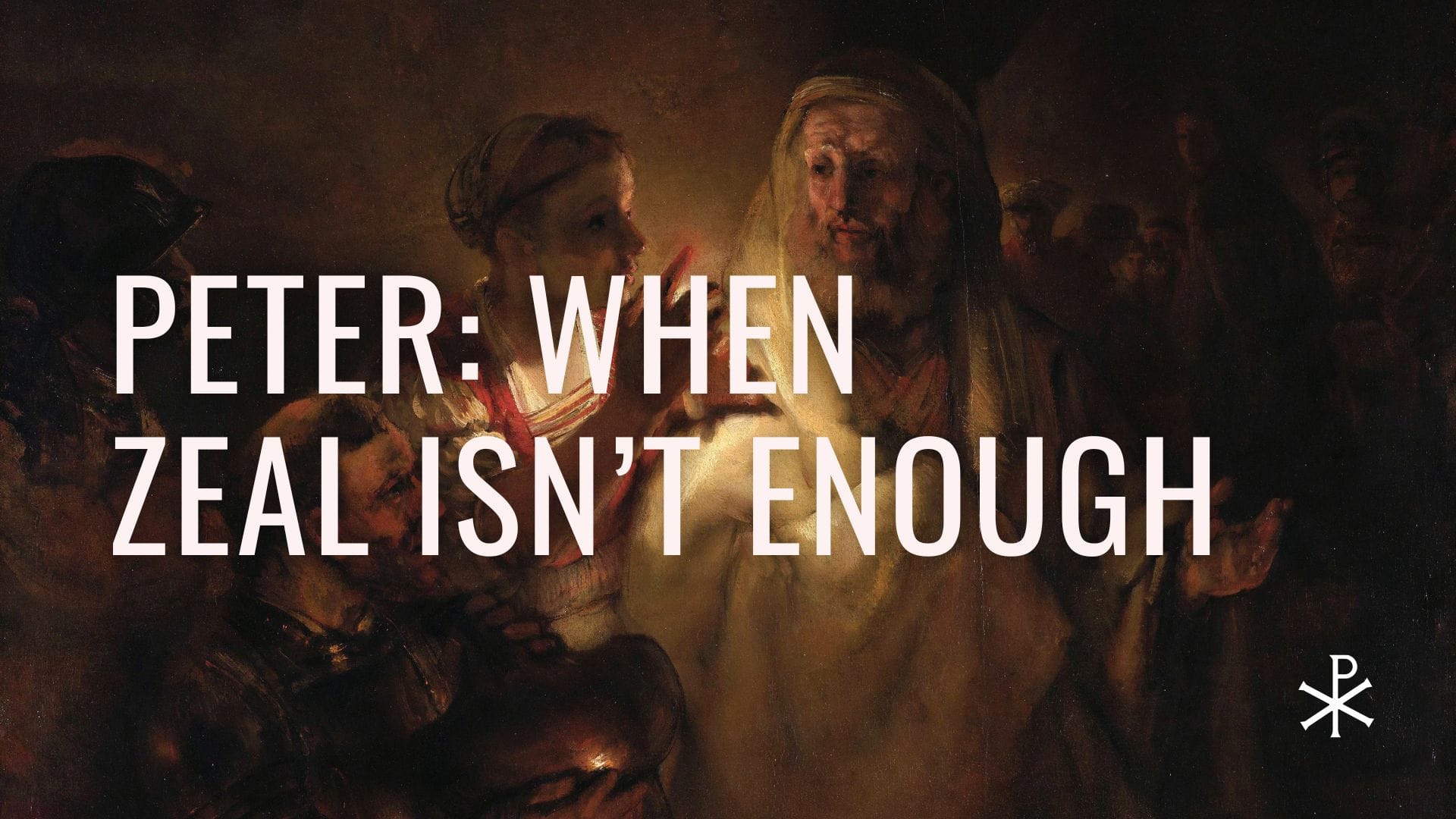Redeemed Failures, Day 1: Peter — When Zeal Isn’t Enough
Peter’s bold self-confidence gave way to heartbreaking failure, and yet Jesus met him not just with forgiveness, but with restoration and a renewed call to ministry.

Scripture Reading: Luke 22:54–62; John 21:15–19
Peter’s words rang with conviction: “I will never fall away.” And we have no reason to doubt his sincerity. He had left his nets, stepped out of the boat, and confessed Christ as the Messiah when others hesitated. So when Jesus warned the disciples that they would scatter, Peter’s response was instinctive and emphatic: “Lord, I am ready to go with you both to prison and to death” (Luke 22:33).
When Self-Assurance Breaks Down
Zeal can mimic faith, but it cannot substitute for it. It may roar in public but crumble in private. That night, as Jesus was led away and fear tightened its grip, Peter hovered near the fire in the high priest’s courtyard. He was close enough to see, yet far enough to hide. Peter wasn’t dragged before a court; he was questioned by a lowly servant girl. And even then, he denied knowing Jesus—three times! Then the rooster crowed. Jesus turned and looked at him. And Peter wept.
This wasn’t just personal failure; it was public collapse. A disciple turned denier. A leader brought low. The one who had spoken most boldly had failed most visibly.
But that look from Jesus wasn’t condemnation. It was the beginning of restoration.
Grace That Doesn’t Minimize Failure
After the resurrection, Jesus sought Peter out, not to scold, but to restore. On the same kind of shoreline where Peter had first been called, Jesus posed a simple question: “Do you love me?” Three times He asked, and three times Peter replied. Not with bluster this time, but with the painful honesty of someone who knew his weakness.
This wasn’t a ceremonial gesture or humiliation ritual. It was soul-deep rehabilitation. Jesus didn’t merely forgive Peter’s failure. He recommissioned him: Feed my sheep. Tend my lambs. He didn’t simply restore relationship. He restored Peter's ministerial calling.
The grace of Christ is never sentimental. It deals truthfully with sin, but never stops there. It lifts the fallen. It heals the wound. And it sends the sinner back into the world with a new kind of strength—not the renewed resolve of the flesh, but the humility that comes from being forgiven.
Failure Doesn’t Cancel Calling
Peter’s story is not one of heroic recovery; it’s one of ongoing mercy. Even after this moment of recommissioning, Peter would still stumble. Years later, Paul would confront him publicly for compromising the gospel out of fear (Galatians 2:11–14). But something had changed. Peter no longer defended himself. He had learned to live not by the strength of his resolve, but by the sufficiency of grace.
Grace That Rebuilds, Not Just Repairs
Have you ever confused spiritual passion with spiritual maturity? Have you ever assumed that good intentions were enough to hold you up in testing?
Peter’s story reminds us that the foundation of Christian life and leadership is not our love for Christ, but Christ’s love for us. Zeal can fail. So can courage. But grace doesn’t. And when restoration comes, it comes not through performance but through repentance. Jesus restores the repentant—not only to fellowship, but to faithfulness.
Prayer
Lord, I confess the times I’ve trusted my own strength more than your grace. I’ve made promises I couldn’t keep and spoken with confidence I didn’t live out. But you are faithful. Restore me, not as a reward for resolve, but because of your mercy. If you call me to serve again, let it be from a place of humility, not pride. Let it be grace that holds me.
